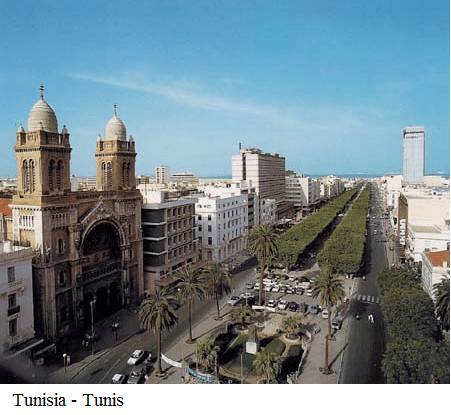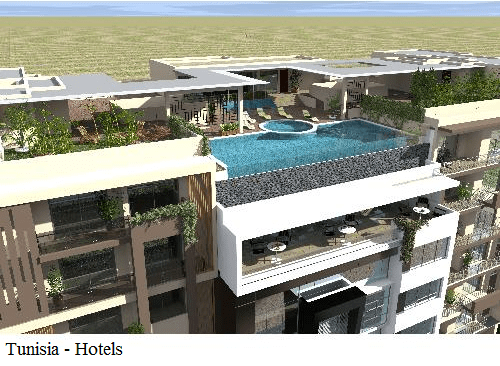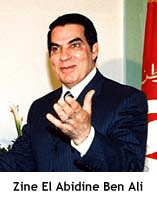
Tunisia is the smallest country in North Africa, and is bordered by Algeria to the west, Libya in the southeast, and the Mediterranean Sea to the north and east. It has a population of 10,732,900 and gained its independence in 1591.
Both the Sahara desert and Atlas mountains played a large role in ancients times with the famous city of Carthage, and then as a Roman province of Africa.

Vandals occupied the region during the 5th century, with Byzantines taking over during the 6th century, and Arabs following in the 8th century.
During the Arab era, the Great Mosque of Kairouan was constructed (in 670 AD) and is the oldest standing minaret in the world, as well as the most ancient and prestigious sanctuary in the Muslim West.
Extensive irrigation systems were built which enabled a luxurious court life, allowing future dynasties to thrive.
However, the region began to decline around the 12th century, and in the late 16th century the coastline became a pirate stronghold.
In 1534, under the command of Barbarossa Hayreddin Pasha, the first Ottoman conquest of Tunis took place. Permanent acquisition of Tunisia occurred in 1574, under Kapudan Pasha Uluc Ali Reis, and the Ottomans retained the region until French occupation in 1881.
Rivalry between French and Italian interests in Tunisia culminated in a French invasion in 1881, and the creation of a protectorate. Agitation for independence in the decades following World War I were finally successful and Tunisia became an independent state in 1956.
The country’s first president, Habib Bourguiba, established a strict one-party state, and dominated the country for 31 years, repressing Islamic fundamentalism and establishing rights for women unmatched by any other Arab nation.
In 1987, Bourguiba was declared medically unfit to continue as president and Zine El Abidine Ben Ali, was his successor. He has won every election since 1987, including his fifth term at the 2009 elections. 
Although the parliament has passed laws that make Tunisia appear democratic, according to Amnesty International, “the Tunisian government is misleading the world as it conveys a positive image of the human rights situation in the country while abuses by its security forces continue unabated and are committed with impunity”.
Ben Ali has diminished freedom of press, political pluralism and censorship is severe. Reporters without borders have included Tunisia in the country listing of “enemies of the internet.”
On December 17, 2010, a 26-year old street vendor set himself on fire in protest of the confiscation of his wares and the humiliation that was inflicted on him by a municipal official – an act that ultimately jump started the Tunisian revolution. Anger and violence culminated into mass protests of the social and political issues in the country.
On January 14, 2011, President Zine El Abidine Ben Ali stepped down, after 23 years in power, and the government was dissolved.
Protests continued on through the remainder of 2011, and on December 12th veteran human rights activist, Moncef Marzouki, was elected president, and a new government was issued thereafter. 
Tunisia is in the process of liberalizing its economy with exporting being its main source of income. It is ranked as the most competitive economy in Africa and has attracted international companies such as Airbus and Hewlett-Packard.